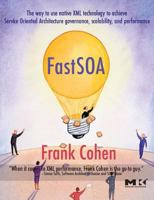Java P2P Unleashed: With JXTA, Web Services, XML, Jini, JavaSpaces, and J2EE
Select Format
Select Condition 
Book Overview
Customer Reviews
Rated 5 starsReferencing similarities with existing, familiar systems
Peer-to-peer (P2P) has progressed from a curiosity to a serious opportunity for businesses to move beyond the costs and limitations of traditional client-server based computing. With a choice of several new, maturing technologies, Java developers need a single source to explain the benefits of each technology and help them see how to fit the P2P "pieces" together - both in building new systems and integrating with existing...
0Report
Rated 5 starsOne-stop shop
This book's title is a bit misleading, as it covers a lot more than P2P. In addition to JXTA, it also has chapters on Jini, and several chapters on Web services. Some of the chapters are better than others; the chapters on JXTA are especially informative. Because the book has many authors, some of the information is repeated, but that does not detract from the book's overall high quality.
0Report


























